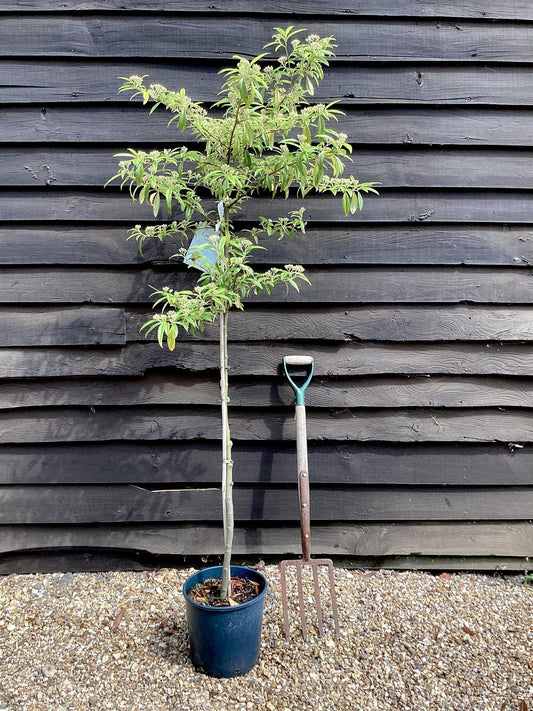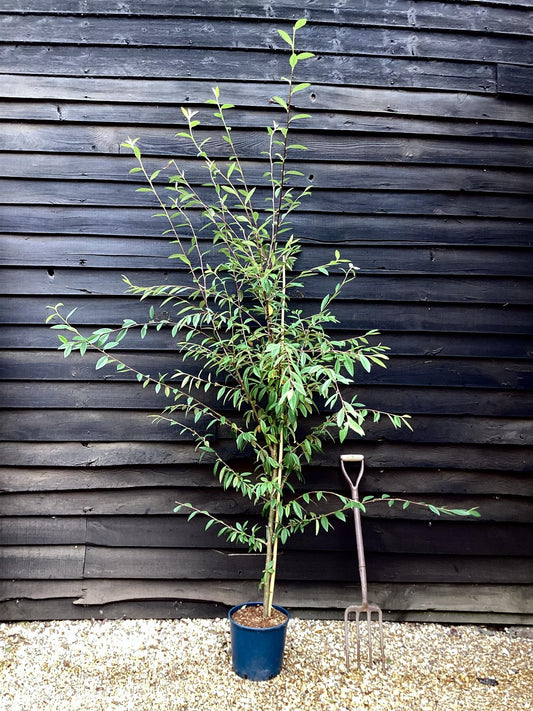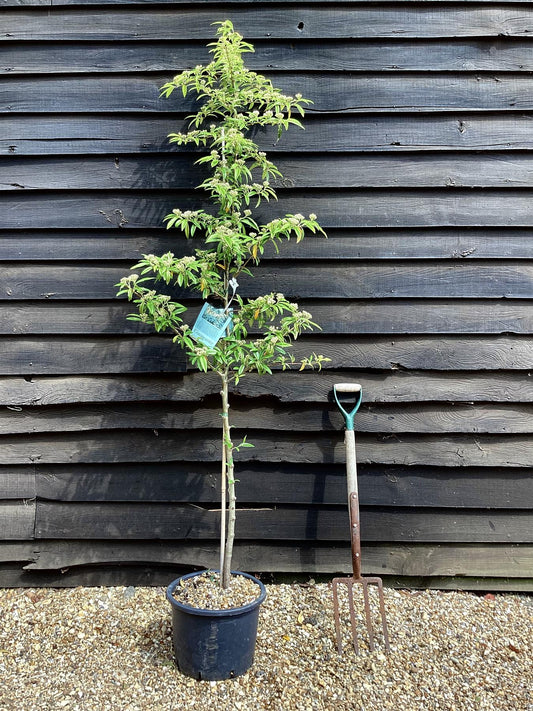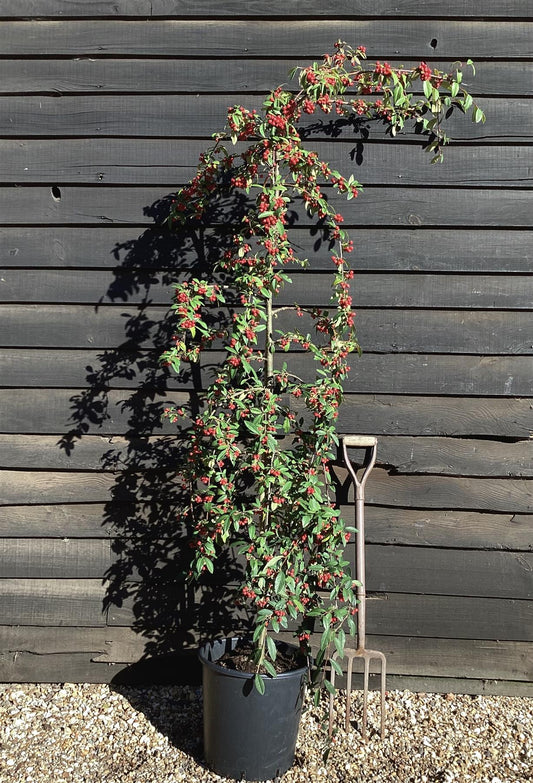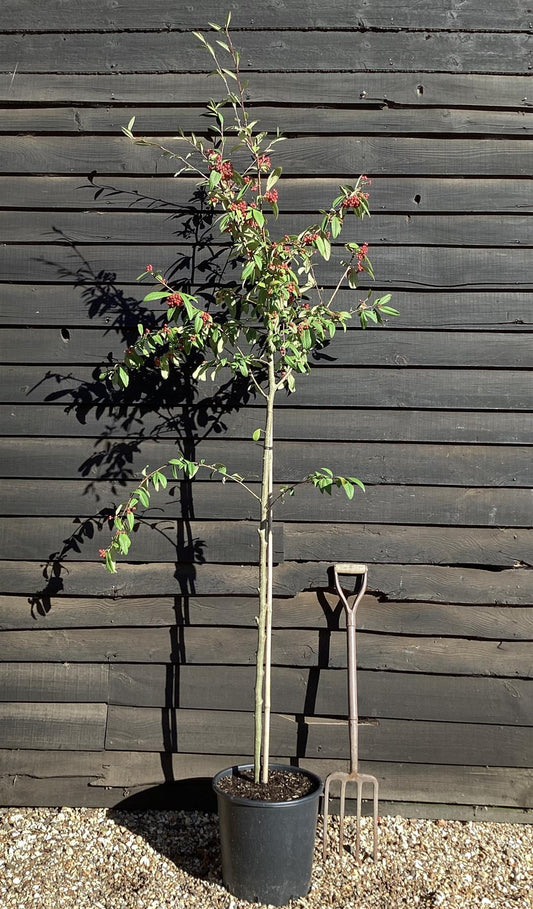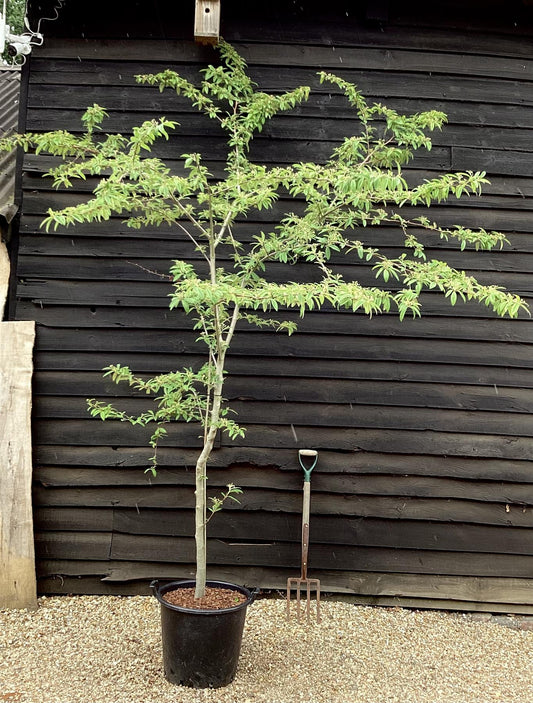Cotoneaster Tree: An Ornamental Jewel and Wildlife Oasis
Cotoneaster is well known and loved for its lush foliage, delicate flowers, and profusion of vibrant berries. It is perfect for hedges and borders, groundcovers and for erosion control, or as a decorative small tree. Discover how this hardy and low-maintenance plant can bring a year-round spectacle to your garden and also become a haven for local wildlife.
The Best Cotoneaster Tree for Sale
The cotoneaster tree is a low-maintenance plant and effortlessly thrives in various conditions. With its attractive berries that persist on branches during the winter, it is highly ornamental and appealing. It is also a great food source for the wildlife.
Here are some standout varieties to consider:
Cotoneaster Rothschildianus is a small, compact tree with graceful arching branches and slender, willow-like leaves. The clusters of lovely, white flowers appear in summer and are followed by yellow berries in winter. It reaches a height of about 4 to 6 meters and has a similar spread.
Cotoneaster Watereri tree is a lovely, dense, elegant shrub with small, oval leaves and a profusion of white blossoms in summer. An abundance of round and brightly colored berries, typically red or orange, appear in autumn and persist throughout the winter. It can grow to a height of 4-5 meters and approximately the same spread.
Cotoneaster Cornubia tree is an awarded tree with long, pointed leaves, masses of white fragrant flowers in early summer, and an abundance of attractive red berries in autumn and winter. It is one of the largest cotoneasters and can reach 8 meters of height and 6 meters of spread.
Cotoneaster Hybridus Pendulus or Weeping Cotoneaster tree is a small, evergreen shrub with long, arching branches that create a dome effect, clusters of creamy flowers blooming in summer, and an abundance of vivid red berries in autumn and winter. It usually grows to about 2 meters in height but can spread more.
Cotoneaster trees have the ability to thrive in challenging urban environments and can tolerate poor soils and urban pollution. It makes a great choice for urban landscaping not only because of its resilience but also because of its value to wildlife. Cotoneaster is an excellent ornamental tree and a great addition to any garden.
Find Cotoneaster Tree for Sale in UK – Arundel Arboretum
If you are thinking about planting this low-maintenance and vibrant plant in your garden and are looking for cotoneaster trees for sale, Arundel Arboretum in Chichester is the right place for you to go. We will be more than happy to welcome you and assist you.
If you want to buy cotoneaster trees online, explore our web store and our carefully curated, both young and mature cotoneaster trees for sale. Browse our selection of cotoneaster tree UK varieties to find the perfect fit for your garden. Find what you need and the rest is on us. Buying cotoneaster trees has never been easier!


